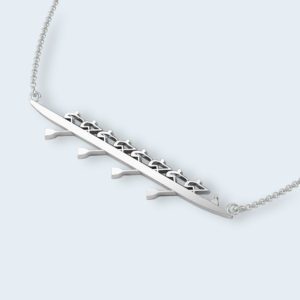The big question facing anyone involved in sport at an international level is funding.
The euphoric summer of Olympic and Paralympic sport has come to an end and while the public look back with still gleaming eyes to those memorable events, the athletes, coaches and performance directors turn their gaze towards the next Olympiad and Rio 2016.
Money breeds sporting success
Funding, after doping, is arguably one of the most controversial areas of elite sport. Which sports, and even which athletes, get funded centrally and which do not is often as difficult a decision to understand as it is to make. How countries appraise their results and fund “legacy projects”, such as grass-roots sport or talent development, often comes down to a balance between rewarding success and gambling on potential.
With increasingly limited resources many countries have chosen to link performance directly to future funding decisions. Medal tables now carry more weight than simply bragging rights.
Do Sporting Medals equal Funding Dollars?
Performance related funding makes funding decisions simple and sends a clear message to NGBs: investment must breed success (in other words: “use it or lose it”). Sports which produce results in competition get investment in their future. Those that fail face cuts to their funding.
The UK system is performance-driven and cut-throat. In December UK Sport will determine the allocation of funds amongst its sports, with emphasis undoubtedly placed on London 2012 performances.
They are confident that improvements can be found in the ‘system’ of each sport so that Team GB can improve on its performance for Rio 2016. Host nations always see a drop-off in performance in the following Olympiad—less investment is available, athletes retire and home advantage is lost—so this is no small ambition.
Which sports will GB fund?
At London 2012 British Rowing produced 9 medals, three more than its target, and topped the rowing medal table. They will expect to see a maintained or increased level of funding for Rio 2016. British Swimming, on the other hand, were tasked with producing 5 to 7 medals. Only three medals came out of the pool from British swimmers, with no golds. Reports suggest that British Swimming, which was funded £25M in the London Olympiad, will face cuts as they compete with rowing, cycling, athletics and sailing for the same money from UK Sport.
Some would argue that sports which miss their targets are those in most need of investment, but as international sport becomes increasingly businesslike so do the demands, and the consequences. Sports which lose significant funding are told to restructure and find greater efficiencies, with reduced resources, in order to get back to winning ways and to their previous levels of funding.
Adam Kreek (CAN M8+ Beijing Gold Medalist) writes about why he thinks Rowing Canada, despite increases in funding, won fewer medals in London than Beijing and what needs to change to put that right in Rio.
“We fell short. What does this mean? We must improve our process. Money should be spent more effectively. Ironically, I would be saying the same thing following a successful Games. What do you think Great Britain is doing right now?
Our athletes succeeded. Our system fell short, if only slightly.”
Efficiencies in the system took Rowing New Zealand to second in the rowing medal table at London 2012, and with a budget one third of that of the GB Rowing Team. In much the same way as the GB system, Rowing New Zealand created pathways to develop athletes from Junior level, through U21/23 to Senior at Regional Performance Centres.
Ursula Grobler (USA LW1x) explains the US Rowing athlete funding and selection system in her blog. By contrast to the squad development system of the GB and NZ programmes, US Rowing only funds athletes in Olympic events and there seems to be little focus on developing talent from early stages. The college (university) rowing system in the US is well established in generating international-level rowers but some would say a strong link through to the national team, particularly through non-collegiate pathways, is missing. US Rowing came sixth in the rowing medal table at London 2012 with one gold and two bronze medals, all from funded ‘big boats’ (W8+, M4-, W4x).
What funding hope for minority sports?
The performance-related funding system is all very well for sports with long-established and developed mechanisms for driving results, but what about those sports looking to break onto the podium at world level?
Minority sports, even Olympic ones, surely look at the budgets of some of the larger sports with wide, hungry eyes. These sports survive on fractions of the funding available to others and growth must look like an impossible task. While the ‘performance-related’ argument demands that investment is a product of results, there must be some merit in the reverse; investment could produce results.
The business-culture surrounding funding applies at all levels. Efficiencies must be found and opportunities taken. Even the GB Rowing Team, which receives massive funding through UK Sport, grew from humble beginnings at amateur level. The development of centres of excellence, sourcing of sponsorship and efficient use of what central funding was available produced superstars such as Redgrave and Pinsent. It is their legacy that built the current GB Rowing Team system (clear from the signs above the national training centre at Caversham, the Redgrave Pinsent Rowing Lake) and allows the British team to train together as a squad with athlete funding and a dedicated support staff. Prior to this, the British national team was spread across various high-performance systems, clustered around coaching talent, in clubs all over the country.
Aside from hoping for superstars to break onto the scene, host nation places at London 2012 for sports such as handball provide opportunities for rapid increase in the rate of investment through increased exposure and emergence onto the Olympic stage.
UK Sport’s Chief Executive, Liz Nichol, recently spoke about these opportunities in the Guardian newspaper article.
“The starting point for handball and other sports with host nation places is to demonstrate they can qualify by right for the Olympics. If they can’t be there, we can’t invest in them.
A sport like handball has been able to raise its profile like never before. It should be able to attract interest from the general public and corporate sponsors. Every sport must be responsible for growing itself to the point where it can get a medal. We’d love to see it come through to a position in future where they could qualify by right.”
These sports need to look at models developed by British Rowing, such as the ‘START’ talent identification programme, to maximise the potential for a post-London surge in participation to produce the stars of Rio. These systems show just how important it is for a sport’s NGB to ensure the entire structure, from grass-roots through to international level, is supported and that pathways are made available to create future champions.







